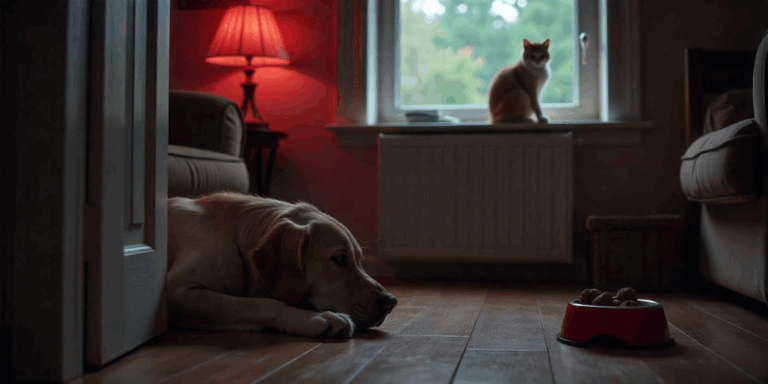
Understanding Pet Emotions in the Modern World
In an age where pets are treated as cherished family members, it’s no surprise that their emotional wellbeing is gaining attention. While we’ve always known pets feel joy, fear, or excitement—many are now asking a deeper, more complex question:
Can pets experience depression?
The answer, increasingly backed by science and veterinary behaviorists, is yes. Pets, especially dogs and cats, can show signs of depression similar to humans—often in response to major life changes, grief, trauma, or loneliness.
In this blog, we’ll explore how to recognize, understand, and help pets who may be going through emotional lows.
🧠 Do Pets Really Have Emotions?
Yes—animals have emotions. Numerous studies in animal behavior, neurology, and psychology confirm that mammals like dogs, cats, horses, and even birds experience emotional states. Their brains have similar structures to ours, including the amygdala and hippocampus, which regulate emotions.
While pets may not feel emotions as complexly as humans, they can feel:
- Happiness
- Fear
- Grief
- Boredom
- Loneliness
- Depression
🐶 Common Causes of Pet Depression
| Trigger | Description |
|---|---|
| 🧍♂️ Loss of a Companion | Death or separation from an owner or fellow pet |
| 🏠 Change in Environment | Moving to a new home, changes in routine, or a new family member |
| 🚫 Lack of Attention | Sudden neglect due to a new baby, job, or busy lifestyle |
| 💉 Physical Illness | Pain or chronic illness can lead to emotional changes |
| 🐾 Abuse or Neglect History | Trauma from previous environments (common in rescues) |
| 📦 Boredom or Isolation | Lack of stimulation, play, or companionship |
📉 Signs Your Pet Might Be Depressed
Different animals show signs of depression in different ways. Here are some general symptoms to watch for:
🐕 In Dogs:
- Loss of interest in walks, toys, or play
- Decreased appetite or sudden weight loss
- Lethargy or excessive sleeping
- Hiding or excessive clinginess
- Destructive behavior (chewing, digging, howling)
🐈 In Cats:
- Avoiding interaction or hiding more than usual
- Changes in grooming habits (over- or under-grooming)
- Inappropriate urination or defecation
- Less vocal or suddenly more vocal
- Decreased appetite
⚠️ Note: These signs can also point to medical issues—always consult a vet first before assuming it’s emotional.
👩⚕️ Diagnosing Depression in Pets
There’s no blood test for depression in pets. Vets diagnose depression based on:
- Ruling out physical illness (blood work, scans)
- Observing behavioral changes
- Discussing life events with the owner
- Tracking habits over time
Some pets may be referred to veterinary behaviorists—professionals trained to diagnose and treat mental health disorders in animals.
💡 How to Help a Depressed Pet
Here are science-backed strategies to support a pet experiencing depression:
1. Restore Routine
Pets thrive on structure. Regular feeding, walking, and play times offer comfort and predictability.
2. Increase Interaction & Enrichment
- Schedule daily play sessions
- Introduce puzzle toys or scent-based games
- Try agility or training exercises for mental stimulation
3. Socialization
- Consider pet daycare or playdates
- For grieving pets, gently introducing another animal may help
- Allow time to warm up to new family members
4. Gentle Exposure to Nature
A change of scenery—like new parks, hikes, or a window perch—can boost mood.
5. Consider Professional Help
- Veterinary advice is essential
- Some cases may require anti-anxiety or antidepressant medications (yes, they exist for pets!)
- Behavior therapy may also be recommended
🌈 Can Pets Recover From Depression?
Yes, many pets bounce back once triggers are removed and their environment becomes supportive again. Like humans, pets need time, patience, and consistent care.
Some may recover in days. Others, especially those dealing with trauma or grief, might need weeks or months. The key is to never punish, ignore, or rush the process.
🐾 Final Thoughts
Pets are sensitive, emotional beings that reflect and respond to their environments. As pet parents in 2025, we’re more aware than ever of their mental and emotional needs.
So, if your once-happy dog has stopped wagging its tail or your cat no longer purrs like before—don’t overlook the emotional signs. They may just be silently asking for help.
Because just like us, sometimes all pets need is a little love, stability, and understanding to feel like themselves again.



